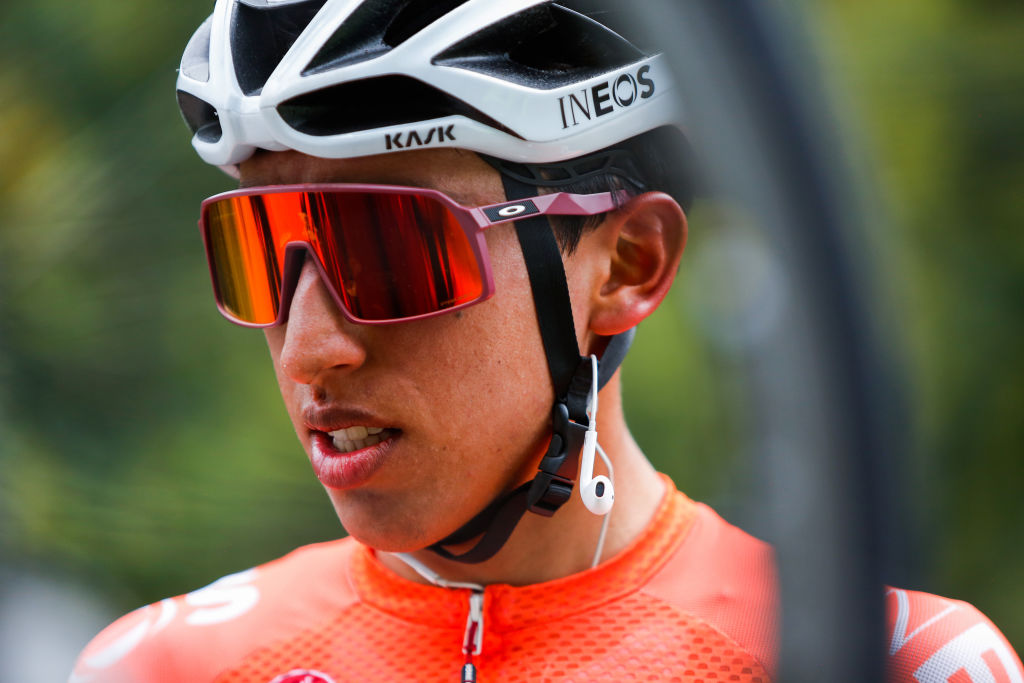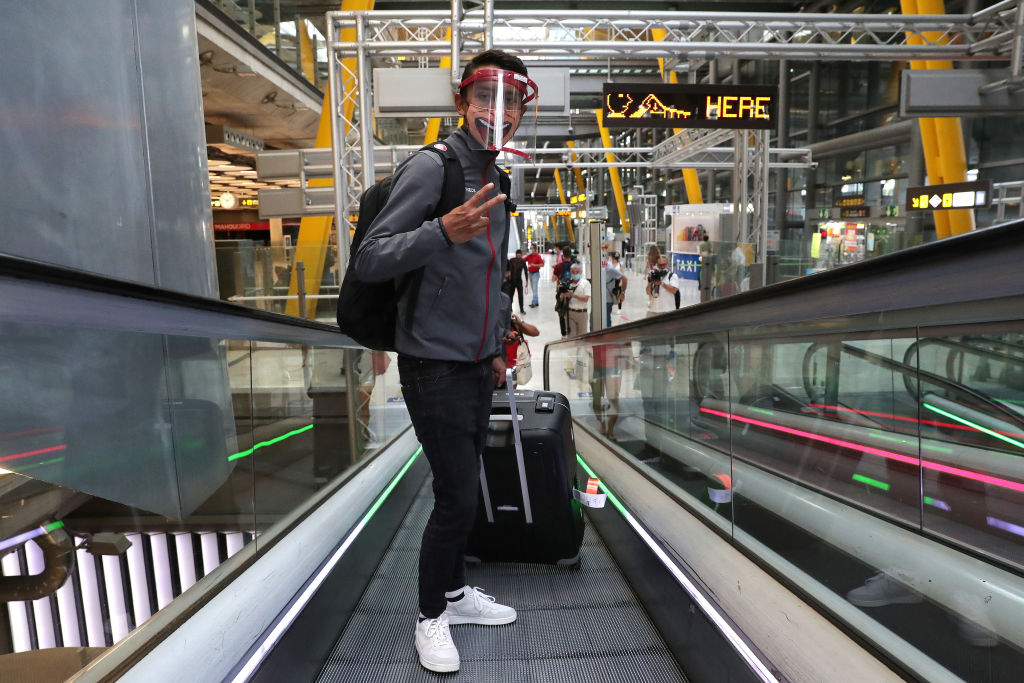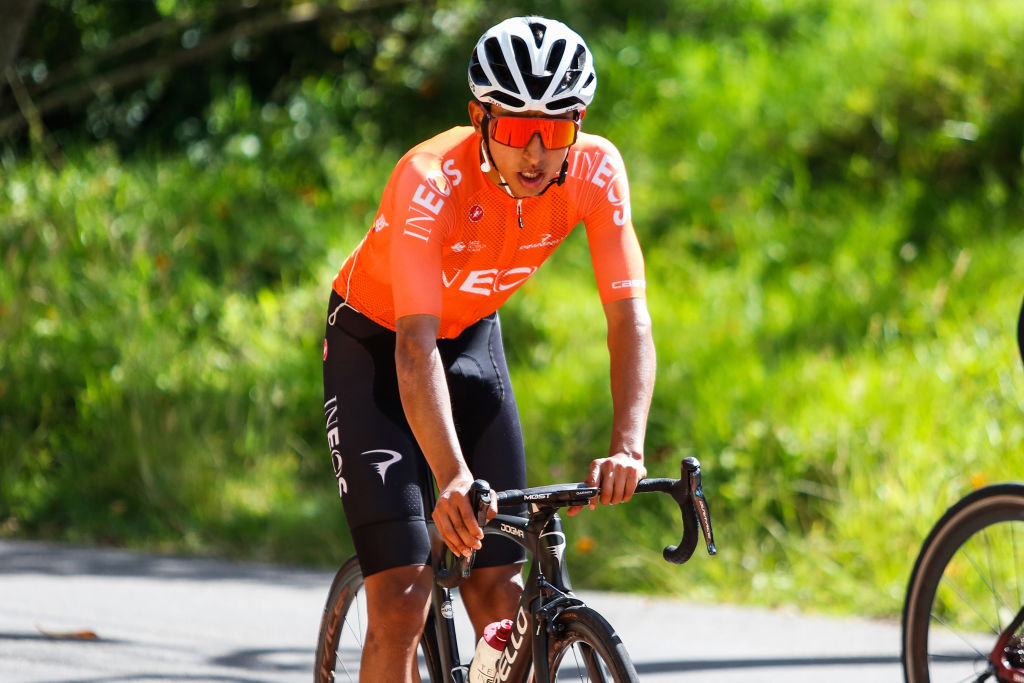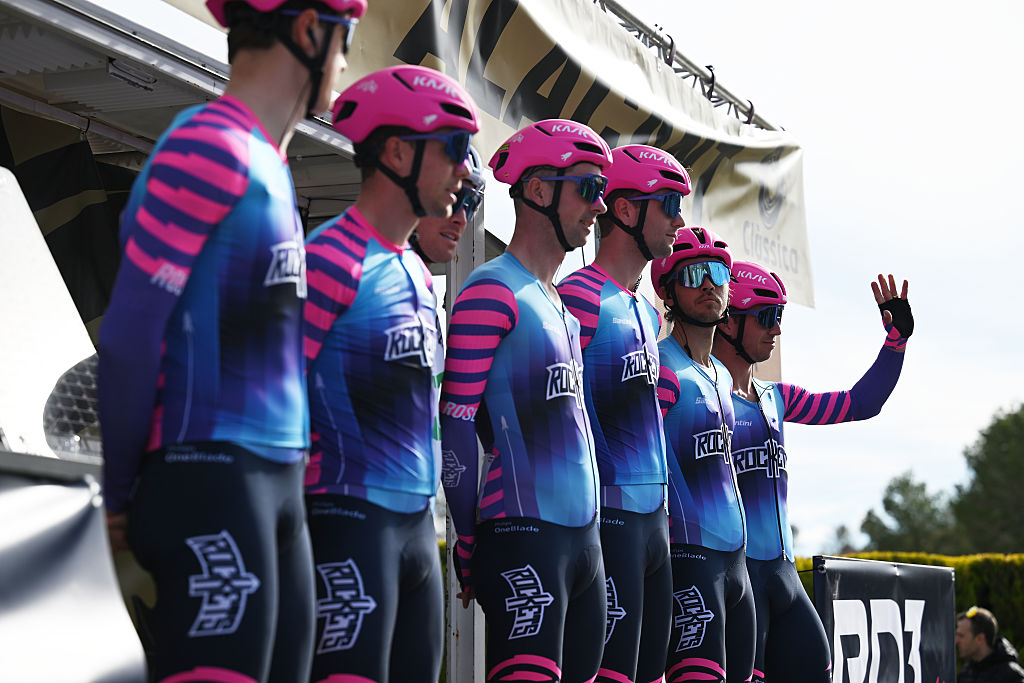Egan Bernal's coach plans fast-track build-up for Tour de France
Exclusive: Artetxe says Tour champion is 'already in very good shape' ahead of 12-day racing block



It doesn't matter where you look in professional cycling at the moment; riders are, at long last, ticking the days off to racing again. And this week, in Andorra, defending Tour de France champion Egan Bernal (Team Ineos) will be doing his final training sessions in what promises to be a highly intense calendar for the Colombian star - not to mention an odd one.
"It's going to be a strange year for them, no doubt about that, and it's already been complicated," Basque coach Xabi Artetxe, who has been handling Bernal's training ever since he joined Ineos/Sky, tells Cyclingnews.
"It's been complicated because at the start of all of this, there was a lot of uncertainty as to when racing would start again, and that uncertainty went on for a month to six weeks.
"Fortunately, a race calendar was established quite a while back. But I think what previously in-form riders did or didn't do during that period of uncertainty that preceded it could have a huge knock-on effect on how they'll perform in the months to come when racing resumes."
"At the same time, those who were injured or needed a period of recovery may well have benefited from this long delay, as is the case with Chris Froome or other riders. So it will be interesting, too, to see how all this has affected each rider.
"Actually, I think we are going to see some big surprises. Firstly, because the racing conditions are different, and the time of year for each race is different as well.
"But on top of that, some riders always perform better earlier or later in the season. That depends partly on how their body responds to different types of weather and outdoor temperatures, and it partly depends, too, on how their biological clock works in each month of the year anyway."
The latest race content, interviews, features, reviews and expert buying guides, direct to your inbox!
'Egan's already in very good shape'
One fundamental piece of the jigsaw of hitting top form so late in the year is already in place for both Bernal and another Artetxe-coached rider, Richard Carapaz, which is that they could get through the lockdown period at home in Colombia and Ecuador, respectively, incident-free.
Being with their families and being able to train and live at altitude in their homes provided multiple advantages, and helped them hit the ground running on their return to Europe earlier this week.

So now what happens? In Bernal's case, given his main target race of the Tour de France comes much sooner than Carapaz's defense of the Giro d'Italia crown, the Colombian will have a packed programme in the first half of August: 12 days racing out of a possible 15.
The main aim of so much racing, Artetxe explains, is to maximise the rider's high-intensity efforts at lower altitude levels and combine it with the endurance training in Andorra this week.
"There are so few days between each race, and given Egan is so good at recovering, that's almost like one long stage race for him. He'll be polishing his form there, bringing it up to 100 per cent."
Asked if that means that Bernal will be fighting for the wins in the three stage races he does prior to the Tour this year – the Route d'Occitanie (August 1-4), the Tour de l'Ain (August 7-9) and the Critérium du Dauphiné (August 12-16) – Artetxe doesn't rule it out. But he doesn't exactly rule it 'in', either.
"We have to be open to both options. If he wins, I wouldn't be surprised, and I'm not going to tell you anything like, 'Oh no, he's still got a way to go,' because Egan's already in very good shape.
"But that's not the objective of going there; the objective is to get to the Tour at 100 per cent."

Bernal doesn't have a choice about this, Artetxe argues, because if there was one year when the option of reaching the Tour 'undercooked' and working your way into top form was not on the table, it's this year.
"The Tour starts with a couple of really complicated stages. Your condition has to be really good. Nobody will win the Tour in the first week, even though it's so tough, but we'll definitely see some of the favourites fall by the wayside. Some of them could be out for the count by the time stage 2 is over," he says.
"That'll either happen because the calendar is scheduled so differently or because they needed those extra two days of competition to hit full form, and those two days were missing from their programme," says Artetxe.
Part of the process of keeping Bernal focused on what he was working on, Artetxe says, was to try to ensure he ignored the near-constant speculation in the media over who would be leading Team Ineos this summer.
"It doesn't matter what your palmarès is if you don't reach the Tour at 100 per cent of your form," Artetxe repeats. "In Egan's case, the people he works most closely with in the team have urged him to stay calm, do his job – which is to train well and recover well – and not to get drawn into all that debate. History tells us that the strongest rider wins the Tour, and if Egan is the strongest he can be, the chances he'll win the Tour this year, I think, are very high."
The crucial Planche des Belles Filles TT
Hitting the Tour in top form is crucial, but at the other end of the Tour de France, of course, is the individual time trial between Lure and La Planche des Belles Filles. At 36 kilometres long, partly flat and partly up a brutally steep hill, Bernal had planned to check it out in the early spring, but having to head back to Colombia before the coronavirus lockdown kicked in scuppered that particular plan. So he will be checking it out after the Dauphiné, Artetxe reveals.
"You need to have really clear ideas about how you're going to tackle that time trial well before the day itself, so that you're not wondering about which gears to use, and whether you should change your bike the night before."
The fact that the time trial is so unusual in a Grand Tour, with a long, flat-to-rolling segment and then the six-kilometre ascent of La Planche des Belles Filles to the finish, make it even more critical to recon, Artetxe believes. Above all, its unusual structure means that stage 20 won't be the more standard final Tour time trial, in which time differences are smaller because all the favourites are near breaking point after three weeks' hard racing, and the fighting for the yellow jersey is all but impossible.
"Choice of equipment will be very important, and form will – obviously – be very important, but what's going to be really, really important is the choice of pacing for the time trial itself. It doesn't matter if you're the best climber in the world; if you mess up your pacing, you can lose mountains of time on the flat section or, if you've burned yourself out, you can then blow it on La Planche des Belles Filles," says Artetxe.
"Time triallists like Froome, Primoz Roglic or Tom Dumoulin (both Jumbo-Visma) could still eat into a pure climber's overall advantage on the Planche. You have to remember that they know, as time triallists, how to pace themselves on climbs.
"But if you get your pacing right," he continues, "you can really make a big difference, by turning it into a day for taking risks, and by pushing yourself to the limit, but without going over that limit.
"What's clear is that nobody will be able to cruise through that stage because that day the differences will be so big – or could be so big – that you could win or lose the Tour," Artetxe says.
Alasdair Fotheringham has been reporting on cycling since 1991. He has covered every Tour de France since 1992 bar one, as well as numerous other bike races of all shapes and sizes, ranging from the Olympic Games in 2008 to the now sadly defunct Subida a Urkiola hill climb in Spain. As well as working for Cyclingnews, he has also written for The Independent, The Guardian, ProCycling, The Express and Reuters.

